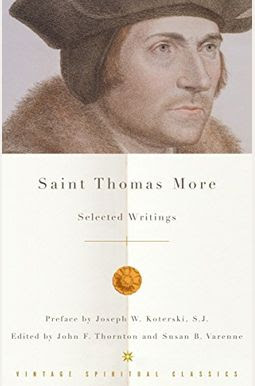My best friend and I read this book during Lent and got together after Mass on Friday last week to complete our discussion of Nobel Prize winning Francois Mauriac's Holy Thursday: The Night That Changed the World in the Sophia Institute Press edition and translation. It's evidently not in their catalog now, but Cluny Media has a different edition, The Eucharist: The Mystery of Holy Thursday, available.
I went through a Francois Mauriac phase after college, reading The Viper's Tangle, Therese, and The Woman of the Pharisees, in my pursuit of covering the "Catholic Revival" in Literature. This is a very different book as Mauriac describes his memories of attending Holy Thursday Mass, with the Stripping of the Altars and the Mandatum (the Washing of the Feet) as major events.
It would have been helpful to the reader if Sophia Institute Press would have explained that the Mass on Holy Thursday was different than it is today when Mauriac wrote and when he experienced it as a child. The Stripping of the Altars and reposition of the Host for the Good Friday service (when only the priest received Holy Communion) took place before the Washing of the Feet. When he discusses First Holy Communions, a note to explain that until Pope Pius X's reform that Sacrament was sometimes delayed until the age of 14 would also have been helpful. It was like the "graduating" Sacrament then and Mauriac comments that many stopped receiving Holy Communion or attending Mass after that. A reader not knowing that in 1910 Pius X set the age of seven (7) as the appropriate time of receiving First Holy Communion wouldn't understand Mauriac's comment.
Writing in 1931, Mauriac also comments on how good it was that frequent reception of Holy Communion was encouraged; another contribution of Pope Pius X (in 1905). The influence of Jansenism had discouraged many from going to Communion more than once a year.
In spite of these criticisms, I wouldn't want anyone to be dissuaded from reading this book. There are some beautifully written (translated) passages, like this one:
The anniversary of that evening when the small Host arose on a world sleeping in darkness should fill us with joy. But that very night was the one when the Lord Jesus was delivered up. His best friends could still taste the Bread in their mouths and they were going to abandon Him, to deny Him, to betray Him. And we also, on Holy Thursday, can still taste in our mouths this Bread that is no longer bread; we have not finished adoring this Presence in our bodies, the inconceivable humility of the Son of God, when we have to rise hastily to follow Him to the garden of agony.
We should like to tarry, to see on His shoulder the place where St. John’s forehead rested, to relive in spirit this moment in the history of the world when a piece of bread was broken in deep silence, when a few words sufficed to seal the new alliance of the Creator with His creature.
Already, in the thought of the One who pronounced the words, millions of priests are bending over the chalice, millions of virgins are watching before the tabernacle. A multitude of the servants of the poor are eating the daily Bread which compensates for their daily sacrifice, and endless ranks of children, making their First Communion, open lips which have not yet lost their purity. (Chapter I, "The Breaking of the Bread", pp. 3-4)
Or this one:
It is not when He withdrew into the desert that He felt the greatest loneliness, but when He was in the midst of the flock of those wavering hearts which the Spirit had not yet kindled. Doubtless, it was necessary that the man in Him be reassured by the God so that He would not lose heart when confronted by the infinite disproportion between His message and the poor human race destined to receive it.However, He did not dedicate Himself to solitude as have so many men of genius. He did not flee from the crowd, but gave Himself up to it. What gives Christ as a man a unique character among the masters of the world is first this gift of Himself, this complete abandonment of Himself to the crowd. Before being delivered, He delivered Himself. He does not belong to Himself, not having come to be served, but to serve. He is the slave of slaves. Nothing belongs to Him. He lives in the street, in the fields, in villages. Miserable bodies affected with leprosy crowd Him, suffocate Him. He seeks refuge in a fishing boat, in order to be able to breathe. Dirty hands grab His cloak; virtue springs from Him.
No one kept less aloof; no one was ever less guarded, more accessible — such He is still today in the tabernacle, given up entirely to all — yet nevertheless, He was alone with His Father, in that mysterious, ineffable union which He sometimes confessed, for this secret also escaped Him: “No one knows who the Father is, except the Son.” (Chapter VIII, "The Secret of Holy Thursday", pp. 58-59)
Mauriac obviously loves and admires St. Therese of Lisieux: he cites her several times, and he relies upon St. Thomas Aquinas and his Corpus Christi Office and hymns when discussing Transubstantiation. He also cites Bishop Bossuet and Jacques Riviere without naming his sources and recommends Jacques Maritain's The Angelic Doctor.
Reading this book by Mauriac makes me wonder about three books Cluny Media also publishes: The Son of Man, The Life of Jesus, and What I Believe. But they will have to wait for another day . . . before I decide to purchase them. There's a line!



_-_Sir_Thomas_More_and_his_Daughter_-_N00425_-_National_Gallery.jpg)



